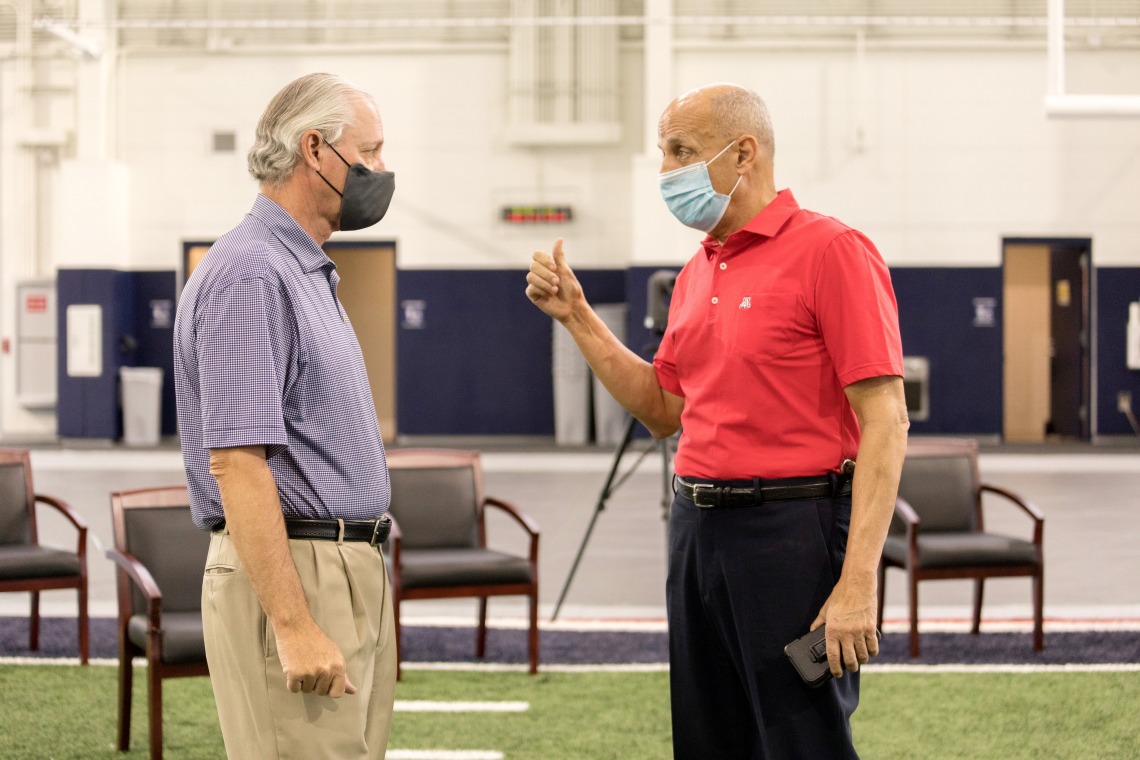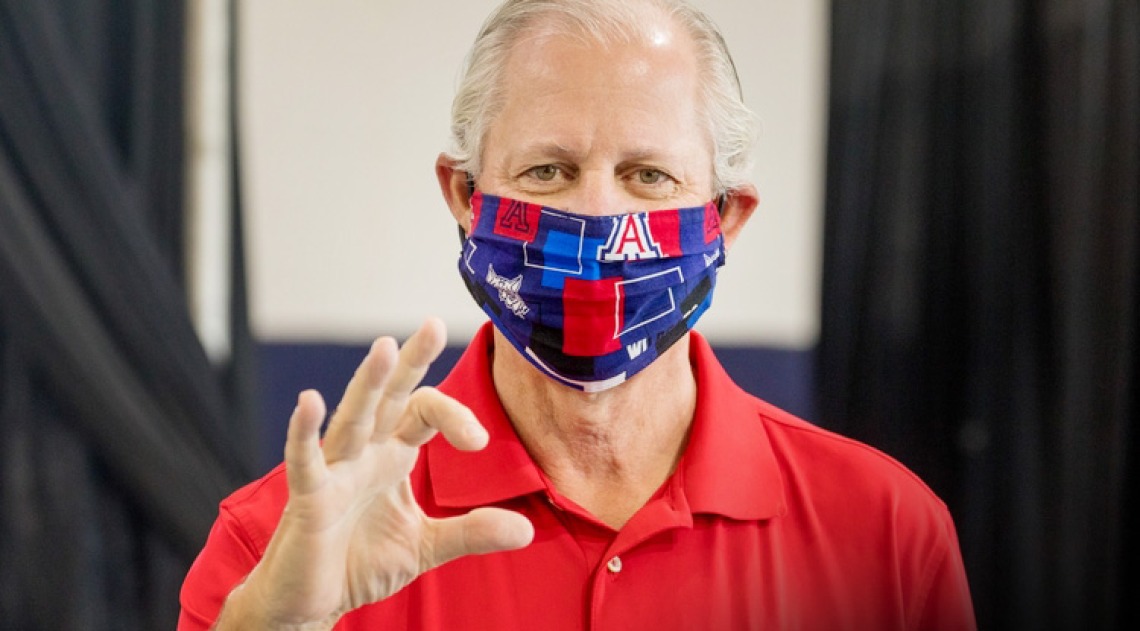Test, Treat and Trace
Antibody Testing and Strategies for Reentry

Robert C. Robbins and Richard Carmona
The University of Arizona began analyzing blood samples from hundreds of thousands of Arizonans in late April to determine who had been exposed to the virus that causes COVID-19 and developed antibodies against it.
The state of Arizona provided $3.5 million to test 250,000 health care workers and first responders throughout Arizona. To lay the foundation for successful statewide implementation, the first phase of testing began on April 30 in Pima County and included 3,000 health care workers and first responders. Overall, there are 31 antibody testing sites across the state, with additional sites becoming available as needed.
The antibody test, developed by Arizona Health Sciences researchers, is one component of University of Arizona President Robert C. Robbins’ three-part Test, Trace and Treat strategy for bringing students and employees back to campus.
Robbins has appointed Richard Carmona, who was the United States surgeon general from 2002-06, to lead the university’s campus Reentry Task Force. As director of the task force, Carmona will head the development and execution of a return-to-campus plan.
Carmona has spent 35 years on the faculty of the University of Arizona. He serves as a distinguished professor of public health in the Mel and Enid Zuckerman College of Public Health and holds dual roles as a professor of surgery in the College of Medicine and a professor in the College of Pharmacy. He also is a Vietnam veteran and a former paramedic, nurse, deputy sheriff and public health administrator.
“Dr. Carmona has an incredible wealth of experience that includes serving as the chief public health officer in the country, and he will take immediate charge of leading this campus community through our reentry process,” Robbins said.
“Dr. Carmona has been entrenched in our campus for decades and we are fortunate to have his expertise in our mix. He has unique experience and is fully invested in bringing our Wildcat family back.”
“As a longtime UA faculty member, it is my privilege to assist President Robbins by leading the UA recovery efforts,” said Carmona.
The COVID-19 antibody tests, which can identify who has developed antibodies to the novel coronavirus, build on the work of Health Sciences researchers Deepta Bhattacharya, associate professor in the College of Medicine – Tucson’s Department of Immunobiology, and Janko Nikolich-Žugich, head of the Department of Immunobiology.

The antibody test, developed by Arizona Health Sciences researchers, is one component of University of Arizona President Robert C. Robbins’ three-part Test, Trace and Treat strategy for bringing students and employees back to campus.
What are antibodies?
“Antibodies are proteins that float in our blood,” says Janko Nikolich-Žugich, who also is co-director of the Arizona Center on Aging. “Good antibodies attach to the virus and whisk it away, preventing it from binding to our cells and getting inside.” Antibodies are produced by the immune system about a week after infection.
As many as 50% of people who have been exposed to the novel coronavirus experience few to no symptoms and can unwittingly transmit the virus in the community. The presence of COVID-19 antibodies means the immune system mounted a response against the virus, even if there were no symptoms.
Experts do not yet know the level of antibodies required to fully prevent subsequent infections. While there might be some level of protection, information about the virus is still uncertain and protection should not be assumed.
When determining the dates to begin testing, the university aimed to strike a balance between providing health care workers with crucial information quickly and waiting until COVID-19’s spread in Arizona had peaked, which models at
the time indicated would occur in late April or early May.
Nikolich-Žugich says that in initial testing the antibody tests correctly classified all 30 confirmed COVID-19 patient samples as positive and had correctly classified all 32 samples obtained before the coronavirus outbreak as negative.
Accuracy numbers will be continuously updated as more samples are tested.
